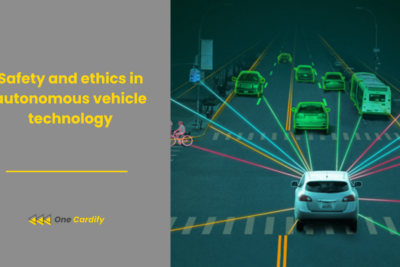
How blockchain enhances cybersecurity
In the digital era, it is essential to protect the sensitive data from the unauthorized access as well as from cyber threats. Blockchains, recognized for being the fundament of Bitcoin and other cryptocurrencies, has become an effective instrument in strengthening the area of cybersecurity. This essay explores how blockchain strengthens digital shields.Based on the properties of decentralization, transparency and immutability, blockchain represents a new way of the online transactions and data exchange securing. This technology does not only guarantee the data integrity and confidentiality but also minimizes the probability of cyber-attacks and data breaches.The thorough study of the many different ways how blockchain technology strengthens digital security gives important information for all people and organizations that attempt to improve their cyber security means. The subsequent sections provide the overview of the game-changing aspect of blockchain in the domain of cybersecurity.
Decentralization: A Shield Against Cyber Threats
Decentralization is in the core of blockchain ability to improve cybersecurity. Rather than the traditional centralized systems, where a single point of failure can result in the data breach of a majority of individuals, the operations of blockchain are spread throughout a network of computers. The centralization of these systems makes it nearly impossible for the hackers to attack the system in manner of breaching the security.The strength of a decentralized approach is that it is more difficult for a cyber-attack to be successful. In contrast, all of a network’s nodes would need to be breached at the same time, which is actually quite hard and expensive to do.Without the central point of control, blockchain reduces the risk of DDoS (Distributed Denial of Service) attacks that is common in centralized architectures. This feature guarantees data availability and data reliability.Also, decentralization facilitates the redundancy and backup of data, thus remaining unchanged and available even when the network is partially failed.
Related content
Related content
Transparency and Traceability: Enhancing Trust and Security
The transparency of the blockchain adds an extra level of security. The ledger is open to all the participants in a blockchain, and every transaction on a blockchain is recorded. This transparency makes any change in the data visible quickly and hence prevents unauthorized edits.This technology also creates a whole new dimension of traceability. Each transaction is connected to the prior one and forms a verifiable chain. This is so since it is near impossible to alter the historical data and escape detection.This is especially useful for sectors that require high data integrity such as the financial and health sectors. It creates trust among those using the system and those apprehensive about the safety and originality of the spilled information.Traceability similarly facilitates quick identification and correction of any anomalies, thus reinforcing the system’s security posture.
Immutability: Secure Data Records
Immutability, one of the key principles of the blockchain, guarantees that once a transaction is added to blockchain it cannot be changed or deleted. This characteristic is important in the defence of data integrity and avoidance of manipulation of stored information.The fact that the data is immutable greatly reduces the risk of fraudulent activities, data manipulation, and unauthorized accesses. It offers a safe and reliable foundation for conducting transactions and storing data, therefore blockchain is a perfect technology for banking, legal, governmental organizations, among others.Immunity also has a significant role in non-repudiation, besides protecting data integrity. Its role is to guarantee that records of transactions are the only verifiable source for both audit trails and legal scrutiny, hence improving cybersecurity.
Smart Contracts: Automatic Enforcement of Security Policies
Immutability, one of the key principles of the blockchain, guarantees that once a transaction is added to blockchain it cannot be changed or deleted. This characteristic is important in the defence of data integrity and avoidance of manipulation of stored information.The fact that the data is immutable greatly reduces the risk of fraudulent activities, data manipulation, and unauthorized accesses. It offers a safe and reliable foundation for conducting transactions and storing data, therefore blockchain is a perfect technology for banking, legal, governmental organizations, among others.Immunity also has a significant role in non-repudiation, besides protecting data integrity. Its role is to guarantee that records of transactions are the only verifiable source for both audit trails and legal scrutiny, hence improving cybersecurity.
Enhanced Privacy and Confidentiality
Additionally, the blockchain technology also provides privacy solutions that are introduced in the form of zero-knowledge proofs. This permits the verification of transactions without disclosing any underlying sensitive information.These capabilities make certain that personal and confidential data are kept encrypted and available only to those who are allowed to access it. With more strict privacy regulations emerging worldwide, the ability of blockchain to protect and ‘hide’ personal information while in compliance with the law becomes priceless.
Blockchain improves cybersecurity through decentralization, making systems more resilient to attacks; transparency and traceability, ensuring data integrity; immutability, preventing data tampering; and smart contracts, automating secure transactions.
While blockchain greatly reduces the risk of data breaches by decentralizing data storage and making unauthorized alterations detectable, it is not a foolproof solution. Proper implementation and ongoing security measures are critical.
Yes, blockchain technology is applicable in various sectors such as healthcare, supply chain management, voting systems, and more, wherever data security and integrity are paramount.
Smart contracts are secure due to their automation and the immutable nature of blockchain. However, like any code, they must be properly written and audited to prevent vulnerabilities.
Blockchain benefits data privacy by encrypting data and leveraging mechanisms like zero-knowledge proofs, ensuring data can be verified without exposing sensitive information.
Immutability ensures that once data is recorded on the blockchain, it cannot be altered or deleted, significantly reducing fraud and unauthorized data manipulation risk.
Yes, by providing a secure, decentralized framework for IoT devices to operate, blockchain technology can mitigate many security challenges associated with these devices.
Conclusion: Fortifying Cybersecurity with Blockchain
Blockchain technology comes forth as a powerful partner in the fight with cyber threats. The characteristics of blockchain, which include decentralization, transparency, traceability, immutability, and the ability to enable smart contracts, and improve data privacy, substantially strengthen the cybersecurity framework.With the increasing pace of digital transformation, blockchain could be the secure ground on which both businesses and government would be safe from the constant change in cyber threats. The road to the future calls for more research and implementation of blockchain in the cyber security realm to fully utilize its capabilities.Adopting blockchain is not only about new technology; it is about passing to a safe, transparent and effective digital future. In the ongoing quest to address the challenges created by cyber threats, blockchain emerges as an effective solution that assures safety and security within the digital world for everyone.Blockchain has just embarked on its path as a revolutionary technology of the modern cyber world, and looking at the capabilities for proving its prowess in the whole spectrum of industrial sectors, the future of blockchain seems quite bright.






Related Posts